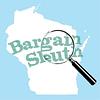Take a photo of a barcode or cover
I had read The Great Bridge from David McCullough (and have a few other of his books on my list). This book is a collection of speeches, mostly given at Commencement ceremonies. There are really interesting references to historical events, tied to the history of the different universities and that are used as inspiration to send graduates
I have recently developed a scratch to learn more about history. I knew I needed to reach out to my grandfather, a history lover, which I could tell lifted him up - and he highly recommended David McCullough. We are in a powerful moment of American history, and I wanted to educate myself through reflection of what came before, to inform my own judgements in the voting booth. This collection of speeches was a great start to figuring out where I would like to begin this journey of knowledge. I feel like our education service has done a disservice in teaching about history - history should be taught in the form of story to promote engagement and curiosity. I am so glad I get to reinvigorate that in myself. History can show us beauty, strength, and human nature in what I would argue is the most raw and authentic way. We have so much to be proud of, and yet so much to learn from as we move forward, which each speech was able to capture. And I hope my future children and grandchildren are moved to do the same.
McCullough is always the answer.
This is a series of McCullough speeches and I love every one of them. McCullough helps us to find our better selves. He uses individuals as examples that we can all aspire to be. McCullough showcases that individuals make a big difference in the world. I for one, needed to hear/read that. Three cheers!
This is a series of McCullough speeches and I love every one of them. McCullough helps us to find our better selves. He uses individuals as examples that we can all aspire to be. McCullough showcases that individuals make a big difference in the world. I for one, needed to hear/read that. Three cheers!
A collection of speeches written by David McCullough from 1993 to 2016. Ranging in topic from history to civics to the importance of education and literature to the decisions of the future. Simply stunning.
3.5 stars - A collection of McCullough's speeches from graduations, ceremonies, etc. throughout the years as a response to the current political climate. While I enjoyed the first few, the stories and themes became repetitive as I read the slim volume quickly in a single sitting - this one might have been better appreciated over time and in audio form.
Nice snippets of history told during speeches. Because of the speech aspect, nice and easy to read.
I've been a long-time fan of historian David McCullough. When I was in college, I watched a lot The American Experience on PBS and he was a frequent narrator as well as being interviewed. I fell in love with his writing style when listening to the 45-hour audio book Truman, the Pulitzer Prize-winning biography of our 33rd president. Through the years I've picked up some of the other McCullough gems: 1776 (both the regular book and the coffee table Illustrated Edition , which has all sorts of reproduction parchments), John Adams, Mornings on Horseback, The Wright Brothers, The Pioneers, The Great Bridge, and that's not all of them; I think I own them all.
The American Spirit: Who We Are and What We Stand For is a series of 15 speeches that David McCullough has given from 1989 to 2016. There's the story of John Quincy Adams, who, after having a less than stellar presidency, returned to government as a Congressman from Massachusetts and served for many years, practically dying on the floor of Congress.
But not everyone McCullough mentions is well known. We learn about Simon Willard’s clock, which sits within a statue in Congress and has been there since 1837. We learn of other things, like monuments and buildings, and historical figures and as I've mentioned, some not so well-known figures, too. McCullough, the master story teller, makes it all interesting as all get out.
For more reviews, visit www.bargain-sleuth.com
The American Spirit: Who We Are and What We Stand For is a series of 15 speeches that David McCullough has given from 1989 to 2016. There's the story of John Quincy Adams, who, after having a less than stellar presidency, returned to government as a Congressman from Massachusetts and served for many years, practically dying on the floor of Congress.
But not everyone McCullough mentions is well known. We learn about Simon Willard’s clock, which sits within a statue in Congress and has been there since 1837. We learn of other things, like monuments and buildings, and historical figures and as I've mentioned, some not so well-known figures, too. McCullough, the master story teller, makes it all interesting as all get out.
For more reviews, visit www.bargain-sleuth.com
As a collection of speeches, the book does not dive deep into any particular event or person from history. McCollough skates along over many events and pulls from history to make a point fitting the occasion for his speech. This leaves the overall experience a little shallow, but I still found perspectives and quotes that were thought provoking and interesting.
You'll fly through this read, and I think that it's probably worth taking the time to do so. A chronological collection of speeches made by one of America's preeminent historians over the span of four decades, it is as much about American history as it is about the intellectual history of a great historian. It is remarkable to see the consistencies, the subtle shifts, and the recurrent anecdotes that animate McCullough's insights. He sees and reveals much.
This read is a bit of a patchwork since it is composed of unconnected addresses, but it is ultimately grounding and hopeful. McCullough is (expectedly) very celebratory of American history, and while he is arguably uncritical in some ways because of his tendency to valorize the past and his narrow focus on founding white men, he still has a great deal to offer American readers about what our history can tell us about ourselves and the peculiar moment in history that we are occupying now.
This read is a bit of a patchwork since it is composed of unconnected addresses, but it is ultimately grounding and hopeful. McCullough is (expectedly) very celebratory of American history, and while he is arguably uncritical in some ways because of his tendency to valorize the past and his narrow focus on founding white men, he still has a great deal to offer American readers about what our history can tell us about ourselves and the peculiar moment in history that we are occupying now.
informative
reflective
medium-paced





